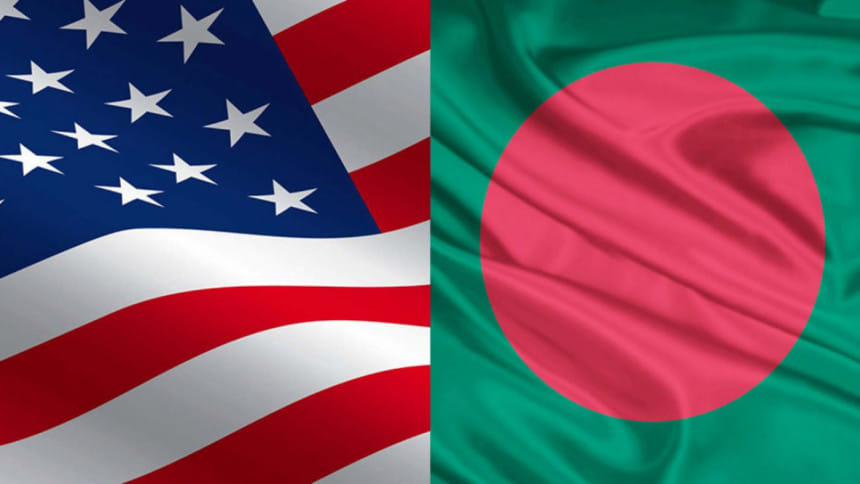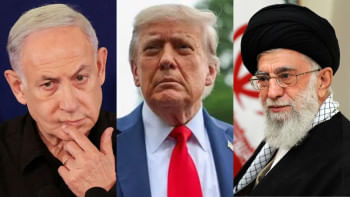US' 'No' to GSP: One-sided love affair!

The exclusion of Bangladesh from Generalized System of Preferences (GSP) is as humiliating as it is heartbreaking.We are righteously indignant.
At the outset, we need to look up-close at the broader picture. The denial to Bangladesh of the facility is out of steps with the US' generosity surging in its relations with some formidable adversarial countries.
Undeterred by lambasting critics, Obama administration has lifted crippling sanctions on Iran in exchange for verifiable curbs on Tehran's nuclear ambitions. Significantly also, we see Washington spectacularly rebuilding ties with Cuba, its former implacable foe. Resumption of full diplomatic ties between the two countries snapped decades ago is clearly in prospect.
The US is so keen to reach out to the region that it is shaking hands with its former enemy Venezuela and its ally Ecuador. Even these two countries appear on the list of 122 beneficiaries of the GSP facility, but not Bangladesh with whom the US otherwise has had multi-layered interactions generally viewed as being mutually beneficial.
Like between two individuals, a pair of countries or governments may have a love-hate relationship. It is as though gripe and attachment are two sides of the same coin. Though US-Bangla interactions have evolved on a love-hate trajectory, an exception is made in relation to the GSP facility for Bangladesh. Dhaka's obsession with it has not been reciprocated by Washington. It has been a case of unrequited love.
Even as the US ambassador to Dhaka Marcia Bernicat tries to assure us that there is no political reason behind the 'suspended GSP', we are reminded of a Kefner quote, 'An official denial is a de facto confirmation.' After having met most of the 16 conditions laid down for our re-entitlement to GSP, are we to believe that all the countries that have been accorded the facility have claim to lily white labour rights and work environment credentials?
Therefore, we carry the inevitable impression that Washington is spelling a message across to Bangladesh with some political overtones.
What deserves our utmost attention now is completing the unfinished tasks viz. implementing rules under the new labour law, reforming law on export processing zones, and responding promptly to cases of unfair labour practices.
The sense of loss for the exclusionary treatment is much greater than is instantly realised. Some people may take consolation in the fact that after all only 5 percent of our trade with the USA is going to be hit, the remainder 95 percent comprising garment export is left unscratched because it doesn't come under the pale of GSP. But isn't it highly ironic and expedient that the US has secured compliance in most part from the garment sector, thereby legitimising apparel exports which they need while giving a raw deal to other exports just to make a point or two to Bangladesh?
For our part, we need a radical change in outlook. Our national psyche is so conditioned that unless told and pressured by external quarters we do not wake up to an unfolding catastrophe. What we should be doing ourselves in good time comes foisted on us by international regulatory mechanisms. This is poor self-management amounting to parting with a modicum of economic sovereignty.
There's no room for any skin-deep interpretation of the level of denial faced by Bangladesh. Note that the GSP programme boosts economic development of the countries on the list by eliminating duties on up to 5,000 types of products to be exported by them to the USA. This has two implications: One, the 5 percent export from Bangladesh would be grossly uncompetitive because of paying high tariffs and couldn't, therefore, hope to expand even that tiny basket; Two, more importantly, we would fail to diversify our exports and widen our market share of non-traditional items in the world's largest economy.
But didn't we see it coming? Quite clearly, we failed to read signals allowing them to be blurred in a haze of compliments paid to Bangladesh's huge potential by US dignitaries.
Our diplomatic naivety played out even just a couple of days before the negative announcement came forth. An online news item on August 11 blared out: 'US Congresswoman Carolyn B. Manoley, also a member of the Bangladesh caucus, expressed support for Bangladesh's persistent call for restoration of trade benefits for exports to the US market.' The US Congresswoman aired such views in her meeting with the Bangladesh ambassador to USA Mohammad Ziauddin in New York.
Earlier on July 30, Christopher S. Murphy, US Senator, urged the US administration to restore the GSP facility for Bangladesh.
In other words, our envoy in the USA had no clue as to what was coming or maybe he was just making a last-ditch attempt to salvage a desperate situation. If the latter is the case, it couldn't be anything but applying a band-aid on a gaping fissure. Both ways it is indicative of a diplomatic failure or a joy ride through a garden path, simply to an empty space.
As J. K. Galbraith said, "There are few ironclad rules of diplomacy but to the one there is an exception. When an official reports that talks were useful it can be safely concluded that nothing was accomplished."
The writer is Associate Editor, The Daily Star.

 For all latest news, follow The Daily Star's Google News channel.
For all latest news, follow The Daily Star's Google News channel. 



Comments